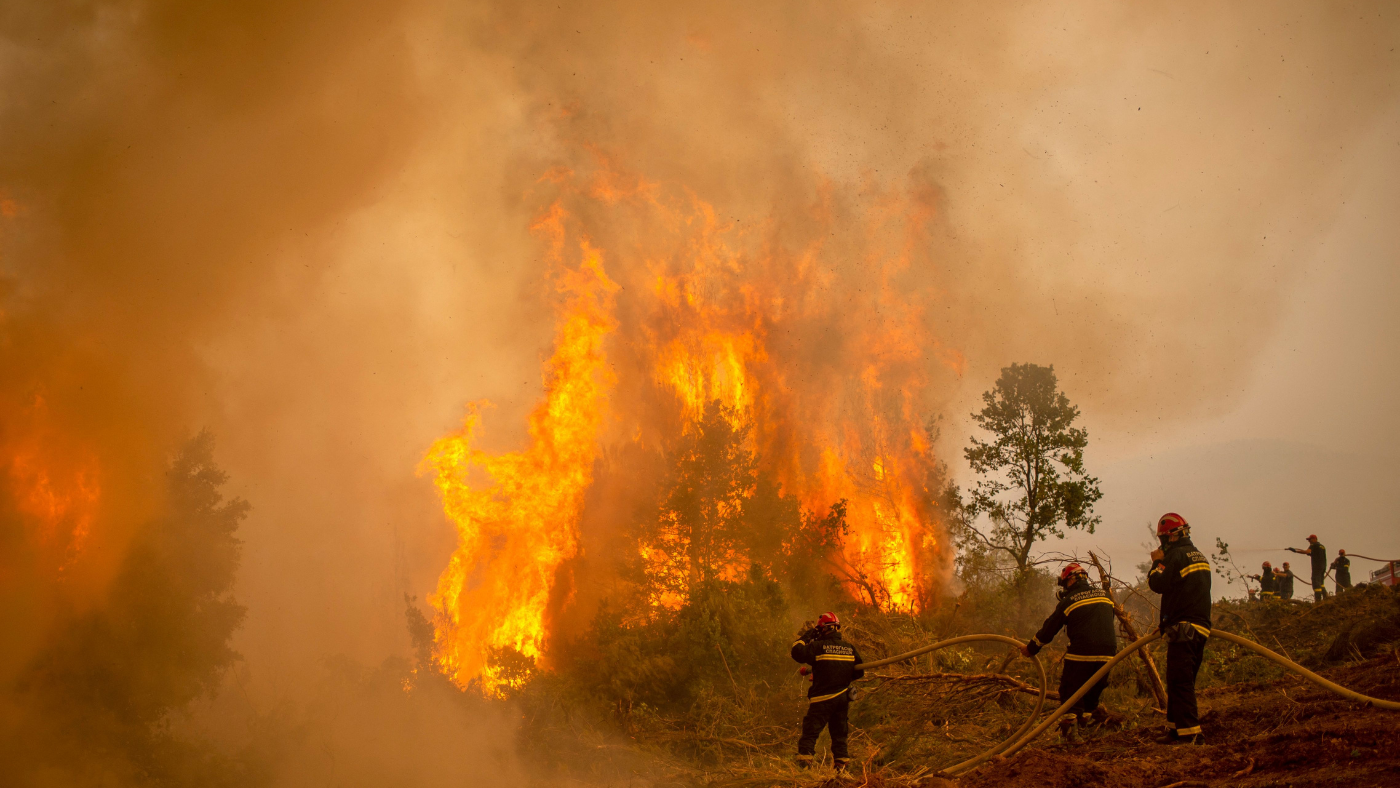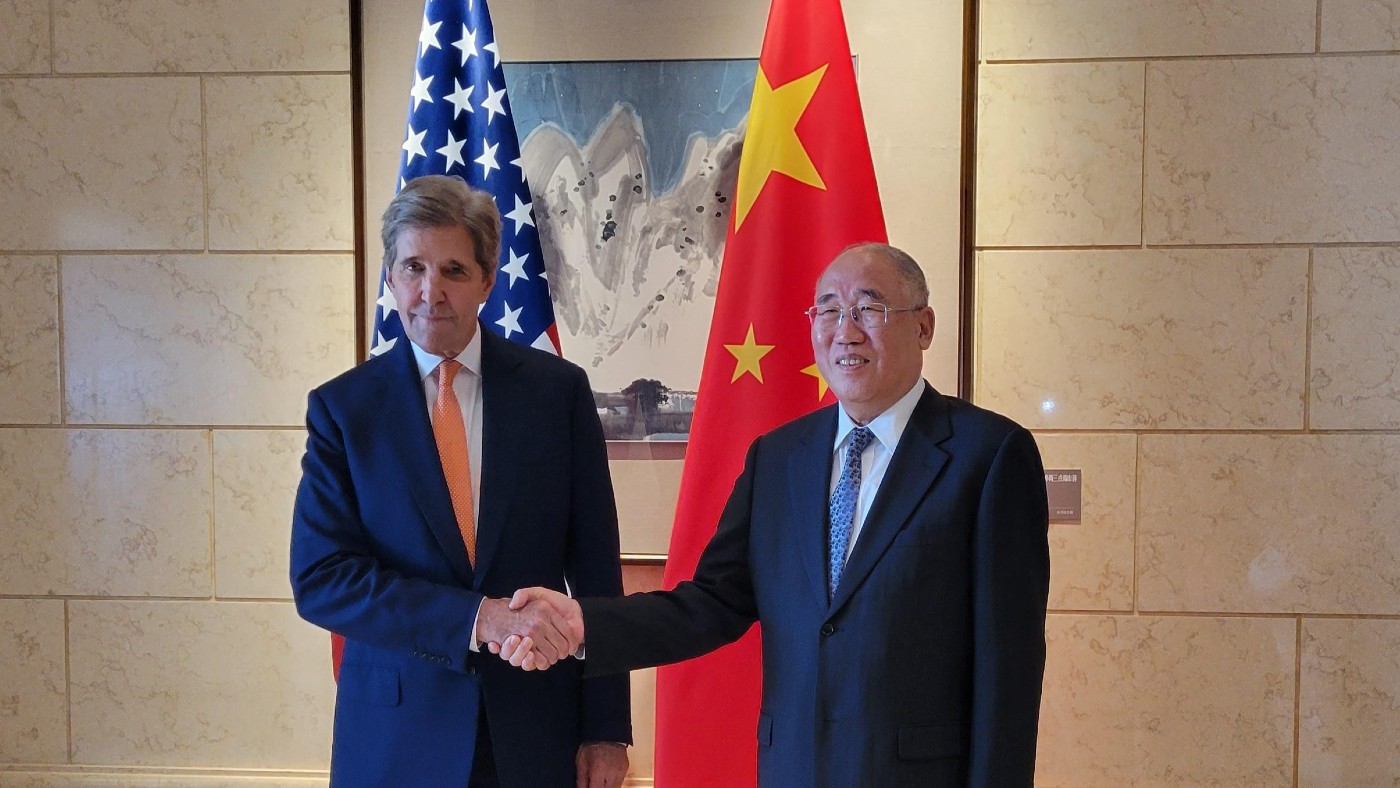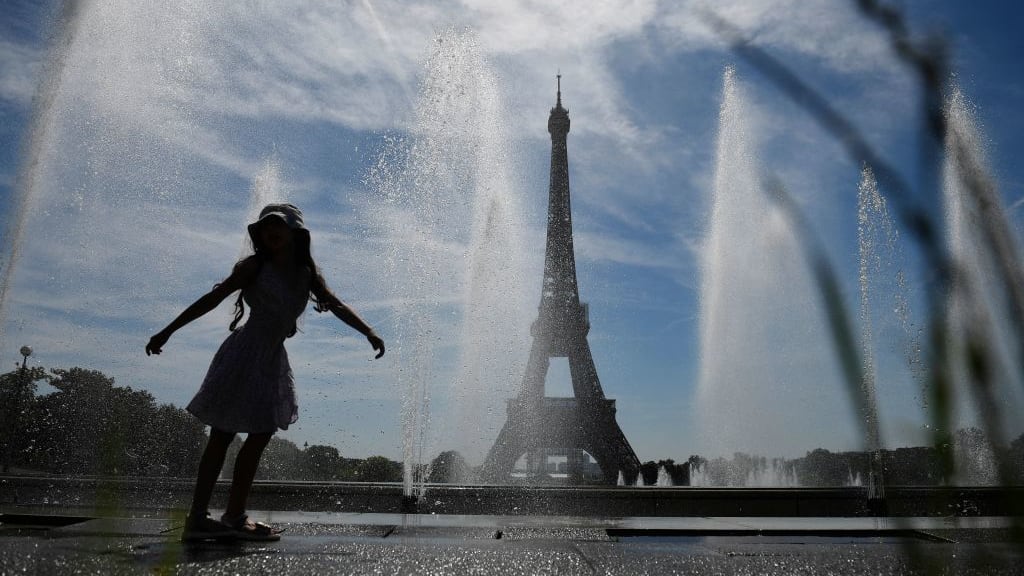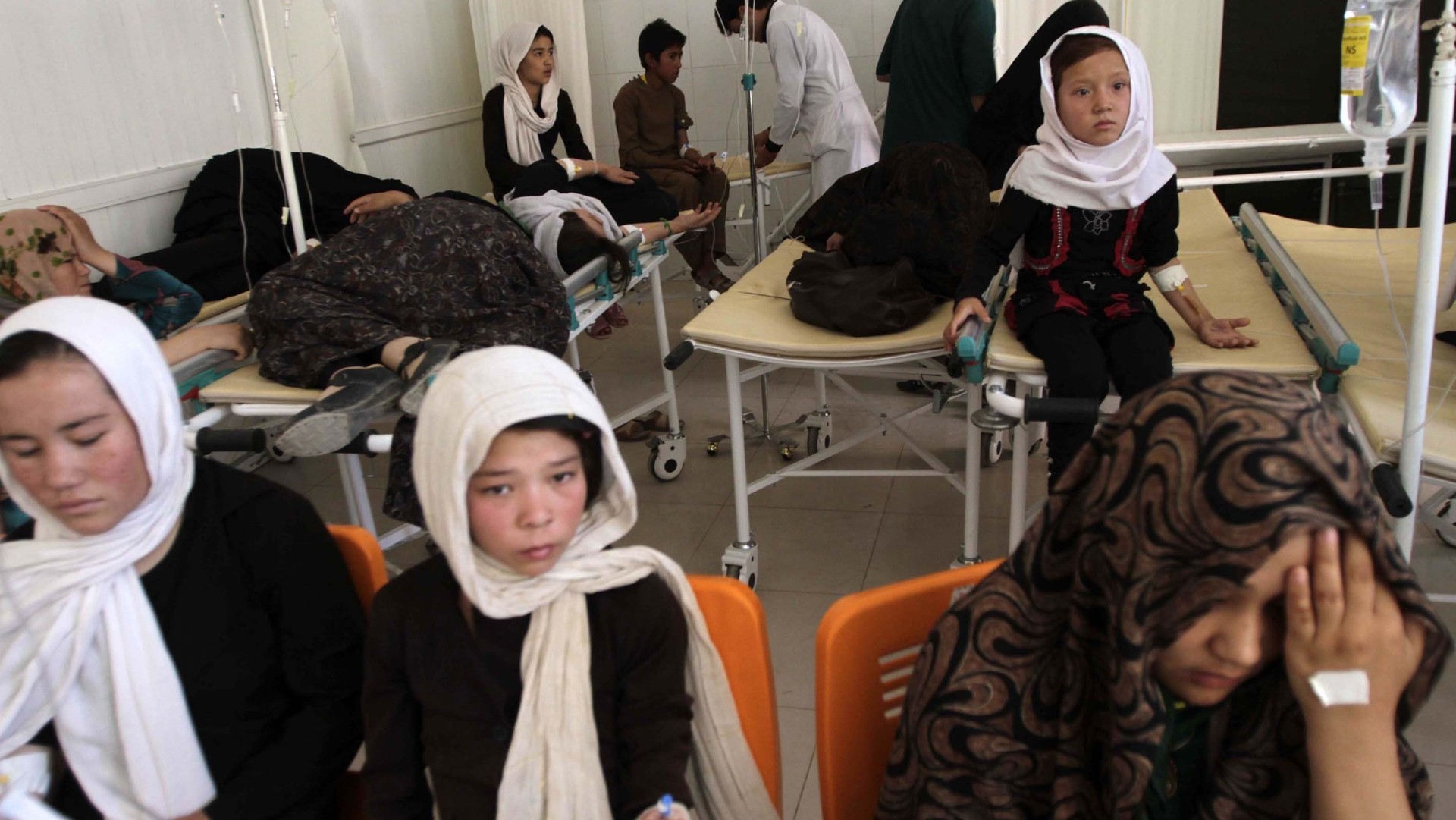‘No billionaire saviour will rescue our dying planet’
Your digest of analysis and commentary from the British and international press

- 1. Is democracy getting in the way of saving the planet?
- 2. ‘Exporting’ single mothers to places hundreds of miles from their homes is causing long-lasting trauma
- 3. Not everyone can afford to ‘learn to live with’ Covid-19
- 4. Boris Johnson’s ‘global Britain’ is obsolete after US Afghanistan response
- 5. Four-day week could be Covid’s greatest gift
A free daily email with the biggest news stories of the day – and the best features from TheWeek.com
You are now subscribed
Your newsletter sign-up was successful
1. Is democracy getting in the way of saving the planet?
Kate Aronoff for The Guardian
on tackling climate change
“There’s a sort of folk wisdom emerging that liberal democracy might just be too slow to tackle a problem as urgent and massive as the climate crisis,” writes Kate Aronoff in The Guardian. Some are even starting to see corporations as more reliable engines of progress. It’s an “enticing vision”, she says. But the problem “isn’t one of too much democracy but too little”. She suggests a vote to cut emissions would easily pass in a world referendum, but fail when limited to the wealthiest countries. The reality is that “no authoritarians are gunning to decarbonise at the breakneck speed required to avert catastrophe” and “no billionaire saviour in the form of Elon Musk or Jeff Bezos will rescue our dying planet”. The answer, she says, “stubbornly, is more democracy – both within and beyond our borders”.
The Week
Escape your echo chamber. Get the facts behind the news, plus analysis from multiple perspectives.

Sign up for The Week's Free Newsletters
From our morning news briefing to a weekly Good News Newsletter, get the best of The Week delivered directly to your inbox.
From our morning news briefing to a weekly Good News Newsletter, get the best of The Week delivered directly to your inbox.
2. ‘Exporting’ single mothers to places hundreds of miles from their homes is causing long-lasting trauma
Vicky Spratt for the i newspaper
on the social housing crisis
Over the last ten years, it has become “standard practice” for London councils to “rehouse people outside of their local area due to social housing shortages”, writes housing correspondent Vicky Spratt in the i newspaper. A combination of “rising rents, a diminished social housing stock, the cap to Local Housing Allowance introduced during austerity and new powers granted to councils under the 2011 Localism Act” intensified the situation in the 2010s. But moving women with children miles away from their homes and even cities is “inhumane and short-sighted”, she adds. “Any home move involves disruption, but when the displacement is involuntary, it can cause trauma.” This situation is evidence for how “urgently” we need more social housing, Spratt concludes. And we need to remember that “home is not just the physical house you live in; home is the place you know and the networks you create”.
A free daily email with the biggest news stories of the day – and the best features from TheWeek.com
3. Not everyone can afford to ‘learn to live with’ Covid-19
Kyle Harper for The Atlantic
on exacerbating inequalities
“For most of human history, the majority of people died of infectious disease”, writes Kyle Harper, an author and historian at the University of Oklahoma, in The Atlantic. But as “public health and biomedicine advanced”, microbes were replaced by cancers and organ diseases as “the main causes of mortality”. The modern world as we know it is a consequence of the control of infectious diseases, adds Harper, but “paradoxically” this control has also helped “widen health inequities, both within and between societies”. Covid-19 “now appears to be falling along these familiar lines”; within America’s borders “it’s a fight against misinformation and hesitancy”, but globally “it is a race between vaccine delivery and virus transmission”. Pushing our fears of new variants aside and insisting that we “learn to live” with the virus is “tempting”, says Harper, but it is “unprincipled” for those from wealthy countries to “enjoy the fruits of modernisation while letting others disproportionately bear the costs”.
4. Boris Johnson’s ‘global Britain’ is obsolete after US Afghanistan response
Andrew Grice for The Independent
on a not-so-special relationship
Joe Biden’s decision to stick to his 31 August deadline for pulling out of Afghanistan at Tuesday’s meeting of G7 leaders – despite Boris Johnson’s appeal – proves “that the ‘global Britain’ strategy the prime minister set out only five months ago is already obsolete”, writes Andrew Grice in The Independent. The “once special” US-UK relationship “proved not ‘valuable’ enough for the Afghans the UK wants to evacuate from their country”. Johnson’s ministers’ “very public” advertising of their demand for an extension only “underlined the UK’s impotence once the request was rejected”, adds Grice. “So does the race against time for UK troops at Kabul’s airport, with the clock firmly in the grip of their US counterparts.” The PM is “the wrong leader” for this new era, Grice concludes, where the UK “can no longer rely on the US”.
5. Four-day week could be Covid’s greatest gift
Alice Thomson for The Times
on a more productive workforce
When the idea of a four-day working week was first floated, “it was dismissed as dangerously bonkers”, writes Alice Thomson in The Times. But now “economists are embracing the concept and linking it to higher productivity”. The four-day week is gradually becoming more mainstream; Iceland has trialled it “with some success”, the SNP is proposing it, Spain is “conducting its own experiment” and Unilever “has implemented it for staff in New Zealand”. One good thing to come out of the pandemic is it has “encouraged the British to re-examine work patterns”, says Thomson. Unsurprisingly, many have realised that “they like spending more time with their children, painting or pottering around the allotment, cycling, knitting and embracing the Good Life”. What is increasingly making more sense is the concept of “working fewer hours for more years”, Thompson adds. It would be a huge experiment, but could “a more productive and contented workforce on four days a week” lie around the corner?
-
 Bad Bunny’s Super Bowl: A win for unity
Bad Bunny’s Super Bowl: A win for unityFeature The global superstar's halftime show was a celebration for everyone to enjoy
-
 Book reviews: ‘Bonfire of the Murdochs’ and ‘The Typewriter and the Guillotine’
Book reviews: ‘Bonfire of the Murdochs’ and ‘The Typewriter and the Guillotine’Feature New insights into the Murdoch family’s turmoil and a renowned journalist’s time in pre-World War II Paris
-
 Witkoff and Kushner tackle Ukraine, Iran in Geneva
Witkoff and Kushner tackle Ukraine, Iran in GenevaSpeed Read Steve Witkoff and Jared Kushner held negotiations aimed at securing a nuclear deal with Iran and an end to Russia’s war in Ukraine
-
 Woman accidentally puts nan in washing machine
Woman accidentally puts nan in washing machineTall Tales And other stories from the stranger side of life
-
 ‘Irony’ as Zoom calls staff back to office
‘Irony’ as Zoom calls staff back to officefeature And other stories from the stranger side of life
-
 Bangladesh dealing with worst dengue fever outbreak on record
Bangladesh dealing with worst dengue fever outbreak on recordSpeed Read
-
 Glacial outburst flooding in Juneau destroys homes
Glacial outburst flooding in Juneau destroys homesSpeed Read
-
 The U.S. veterinarian shortage crisis
The U.S. veterinarian shortage crisisSpeed Read With an anticipated shortage of 15,000 vets by 2030, it will be harder to get care for pets
-
 John Kerry in Beijing: how red China is turning green
John Kerry in Beijing: how red China is turning greenfeature Climate talks set to resume between Washington and Beijing this week
-
 Study: Nearly 62,000 people died in 2022 European heatwave
Study: Nearly 62,000 people died in 2022 European heatwaveSpeed Read
-
 ‘We should be scared’: the poisoning of schoolgirls in Afghanistan
‘We should be scared’: the poisoning of schoolgirls in Afghanistanfeature Children hospitalised in allegedly deliberate mass attacks is latest in series of incidents going back decades